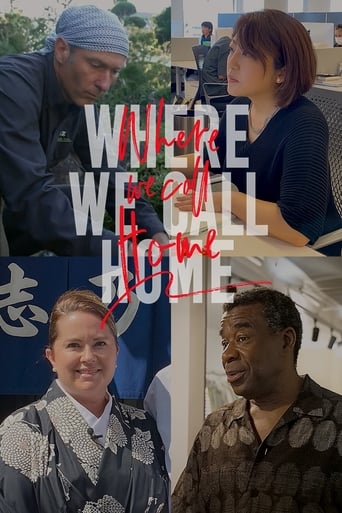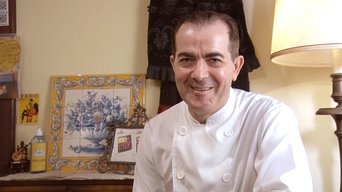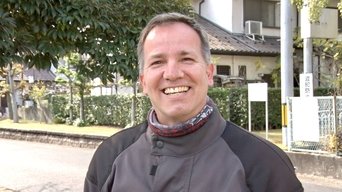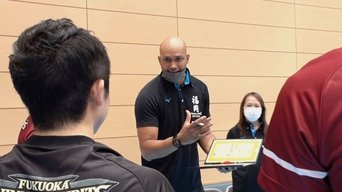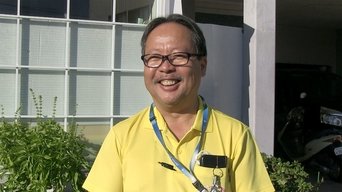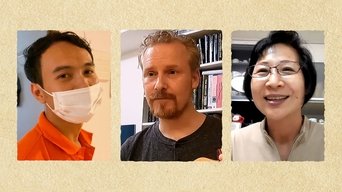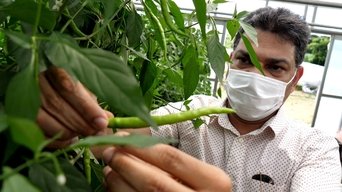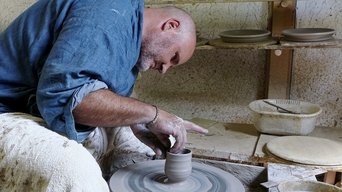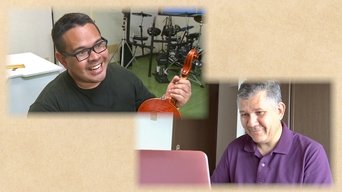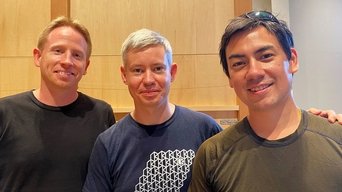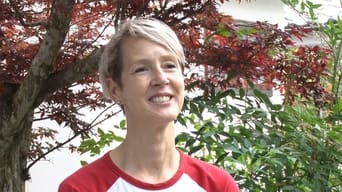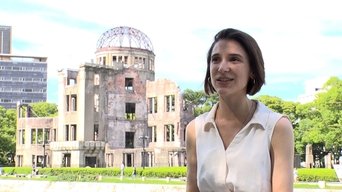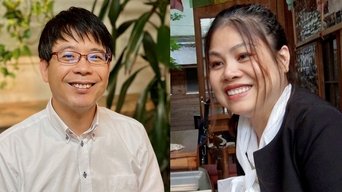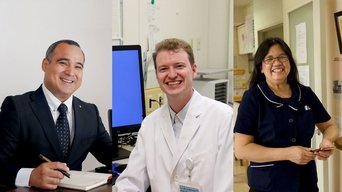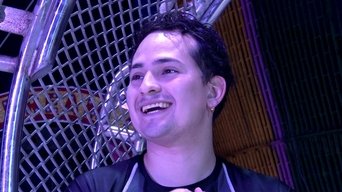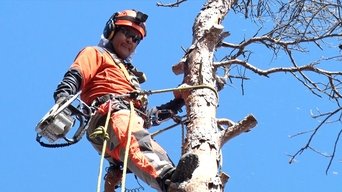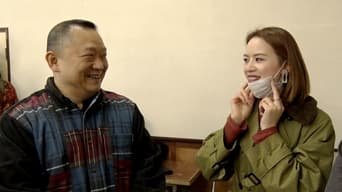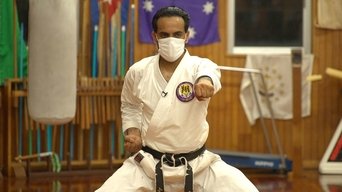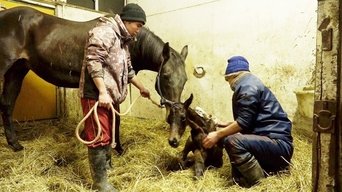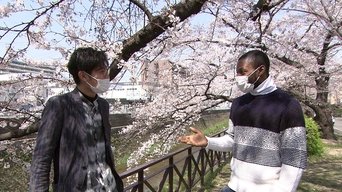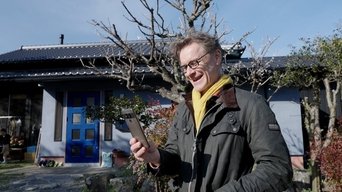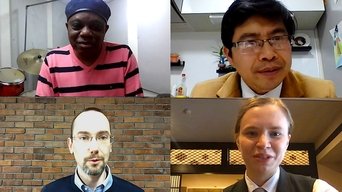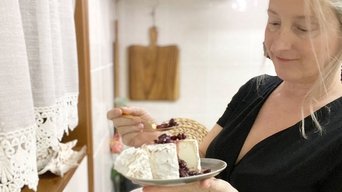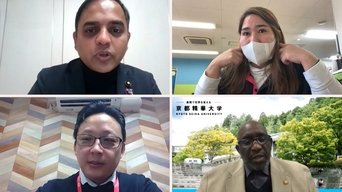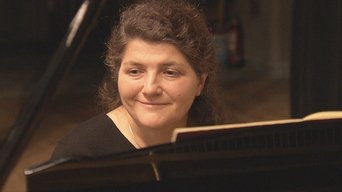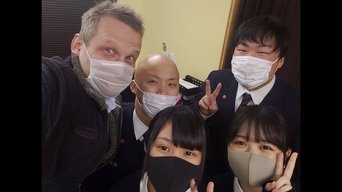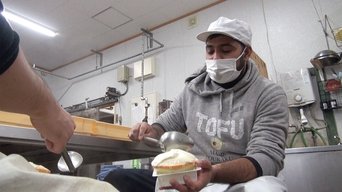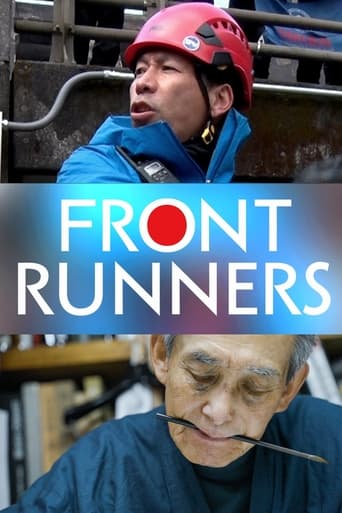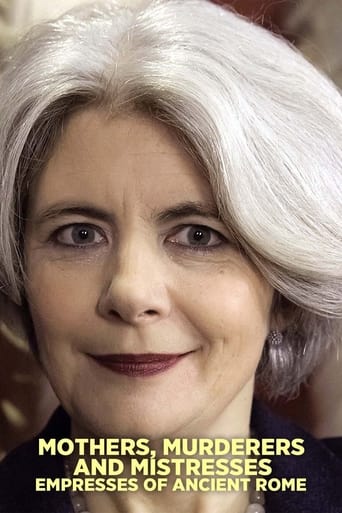Where We Call Home Season 2
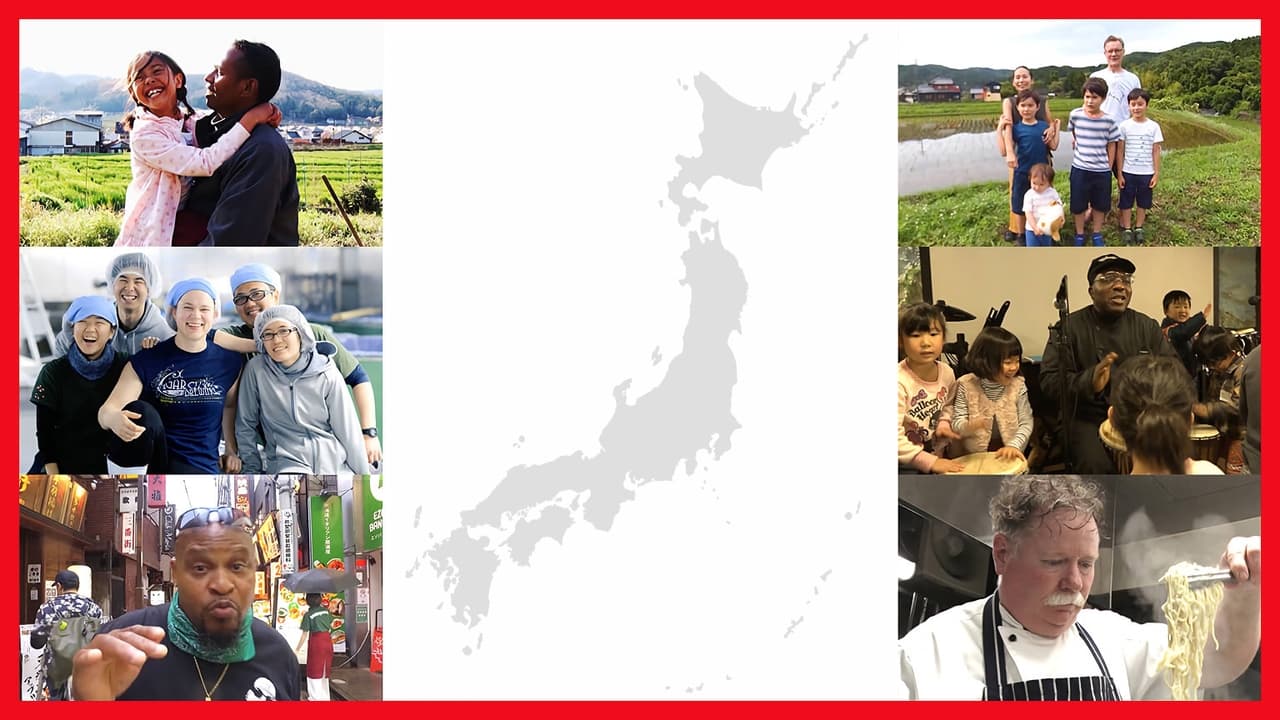
People from around the globe who put down roots in Japan offer a glimpse into their lives and the hardships they face in Japanese society.
Watch NowWith 30 Day Free Trial!
Where We Call Home
2020
People from around the globe who put down roots in Japan offer a glimpse into their lives and the hardships they face in Japanese society.
Watch Trailer
Where We Call Home Season 2 Full Episode Guide
In Japan, castella cake has been popular for generations. It's the descendant of "pao-de-lo," a dessert brought to 16th-century Japan by Portuguese merchants. Also from Portugal is Paulo Duarte, a confectioner in Kyoto Prefecture who made it his mission to reintroduce Japan to "pao-de-lo." We follow his attempt at baking the "missing link" between the 2 cakes. Don't have a sweet tooth? Then tag along as we later visit the Tokyo shop of Vietnamese-born Tran Van Trung for some of his famous fish-stock ramen.
On this episode, we head to Gifu Prefecture to meet German-native Bernd Kestler, a knitting artisan whose work is inspired by the prefecture's natural colors. Through his creations, he wants to help reinvigorate the textile industry in Gifu and the surrounding areas. We follow him as he collaborates with a dyehouse to produce original yarn with hues based on the region's persimmons. We also drop by a Tokyo hostel where US-born Delice Green and her colleagues work hard and stay positive amid the pandemic.
We meet Maurice Torralba, a former member of the national volleyball team in his native Cuba, whose competitive career was cut short by injury. After marrying a Japanese woman he met in his homeland, he's now settled down in Miyazaki Prefecture where his athletic dream is alive and well, this time as a coach for elementary school children, high-schoolers and even a pro-level volleyball team. We also follow Taiwanese Huang Lian for a day in his work as a patterner of women's fashion in Tokyo.
This time, we head to Kikugawa in Shizuoka Prefecture where many non-Japanese workers live. For the children of foreign parents, difficulty with the Japanese language is a barrier to entry into elementary school. Luckily for them, Ochi Kiyoshi, a Brazilian of Japanese descent, runs a daycare center where children learn Japanese. We look at his work and how the pandemic impacted him and the kids under his care. We also meet Johan Erik Nilsson Bjork from Sweden, a professional "rakugo" storyteller in Tokyo.
In recent years more and more foreign workers are being hired in Japan in response to the shortage of care laborers for the elderly. But the pandemic brings up additional issues for both the aged and care workers. On this episode, we look at the work of non-Japanese care laborers, from a nursing home that set up a prayer room for its Muslim staff to a Swedish man who uses music therapy to support the elderly with dementia, as well as a Korean woman who provides care for foreign elderly in Japan.
We follow Nitin Hingarh who runs a Tokyo company selling ingredients from his native India to restaurants around Japan. With the impact of COVID on food service, he had to shift gears. He opened a branch of his grocery store in Tokyo's Little India with the help of a Japanese supermarket veteran, and is now trying to have Indian chili peppers grown for the first time in Japan. We also meet Hungarian Mate Varga, a UI designer living in Japan who's been working from home due to the pandemic.
On this episode, we meet UK-born potter Adam Smith who lives in Nagano Prefecture. After learning Japanese-style pottery in his native country, Adam moved to Japan to further his mastery of the craft and work with glazes made from the ash of various natural elements. He's now collaborating with a vineyard to produce cups that go well with local wine. Also, yoga instructors Mukesh Thapliyal and Sina Krickhahn introduce how they adapted their workstyle to continue to teach in Japan in spite of the pandemic.
Lack of social contact due to the pandemic can cause feelings of isolation and anxiety, which can be made even worse by language and cultural barriers for those living abroad. On this episode, we follow 2 Brazilian men in Japan who are helping their compatriots fight loneliness. Psychologist Irineu Carlos offers emotional support to people suffering from problems such as depression, and Rafael Kinoshita reopened his violin and guitar school to lift children's spirits with the power of music.
United by their love and passion for craft beer and their adoptive Kyoto Prefecture, Chris Hainge from the US, Canadian Paul Speed and Wales-born Ben Falck run their brewery in Japan's old capital. Business was doing well until sales dropped due to the pandemic. We follow the intrepid trio's efforts to overcome the hardships by strengthening their ties to the Kyoto community. We also visit Polish Anika Godek at the Fuchu City Hall in Tokyo where she promotes the town's appeal to visitors from abroad.
Like in many other small villages in Japan, the population of Sasama in Shizuoka Prefecture is declining due to aging. But US-native Shelley Clarke is determined to change that. To attract tourists, she's turned an old house into a cafe cum lodging facility. She's also learning a local traditional dance to help preserve it. We follow her in her efforts to reinvigorate her beloved village of adoption. We also meet Korean Kim Eun-young, whose online cooking lessons are drawing in students from all over Japan.
On this episode, we visit Hiroshima to meet Mary Popeo from the US. She works there as a "Peace Guide," teaching visitors from abroad about the atomic bombing on Hiroshima, and relating the experiences of the survivors, also called "hibakusha." One of them, Ito Masao, has been encouraging Mary in her mission to raise awareness on the tragedy of the bombing. We also tag along Mongolian-native Selenge Luvsanchimed for a day in her work as a bag designer in Tokyo.
With the pandemic, the number of foreigners in Japan who find themselves without work is on the rise. On this episode, we follow 2 people's efforts to provide support to the unemployed. Duong Thi Thuy Duong mobilized a Buddhist temple, volunteers and donors to help fellow Vietnamese who've become homeless. And, part of the staff at an employment support center for non-Japanese established in May 2020, Chinese-born Sugaya Akihiko earnestly guides people on their way to finding work.
When living abroad, the language barrier can be a major obstacle. This is particularly true in healthcare, notably with the current pandemic. We focus on 3 non-Japanese who provide assistance in the medical field to foreigners in Japan: Australian-born Nicholas Rennick, a general physician doing consultations in English; Liza Ishima from the Philippines, an interpreter at a local clinic; and Peruvian-native Cesar Cabrejos, who promotes phone interpretation services for healthcare facilities.
Step right up, ladies and gents! Come witness the thrilling spectacle that is our latest episode! With thorough preventive measures against the pandemic, the Happy Dream Circus presents performers from 7 different countries as it tours western Japan. Watch top star Alan Ibarra from Mexico as he trains the only Japanese performer in the troupe to master the spine-chilling Wheel of Death! We also meet Vietnamese Dang Van Kien, who's been working as a plasterer in Japan for 7 years.
In this episode, we head to the forested Northern Alps of Nagano Prefecture with Lama Gyalu, a Sherpa and former mountain guide from Nepal. Devoted to preserving the natural environment of his beloved region of adoption, he founded his own forestry company in 2019, combining his wisdom accumulated while a guide in his native country with the knowledge acquired over the years of study in Japan. Also in forestry, we meet French-born Eric Belœuvre, who left the city's comfort to work in the woods of Gifu Prefecture.
We follow Chinese-born Aya Wu, owner of Szechuan restaurants in the Tokyo area. To help her business survive the pandemic, she hired the services of a meal delivery company, but commission fees proved too high, prompting her to start her own delivery business. Hoping other eateries join in, Aya set up low commissions. However, getting enough restaurants to participate is harder than she expected. We also meet Yohandy De Armas from Cuba, a former pro basketballer turned gym instructor in Tokyo.
In recent years, the Nepalese population has been growing in Naha, Okinawa Prefecture. Acting as a bridge between his fellow Nepalese and Okinawan society is Ojha Laxman, who came to Japan 10 years ago to learn karate. He now also teaches children at the dojo where he trains. We follow Ojha as he and the Nepalese community prepare to celebrate Nepal's New Year with the Okinawan locals. We also meet Vietnamese-born Pham Nhat Quan who works for a Tokyo firm specializing in foundation construction.
On this episode, we travel to Urakawa Town in Hokkaido Prefecture where Nguyen Van Bao and Nguyen Van Hieu, 2 veterinarians from Vietnam, work as grooms at a racehorse breeding farm. Not accustomed to taking care of horses at first, they're now in charge of 20 animals each. We follow them as they tackle the busiest time of the year for horse breeders: spring, when mothers give birth. We also meet French-born Jeremy Escudero, who sells kitchen knives at a Tokyo store with more than a hundred years of history.
This episode takes us to Kyoto to meet Togo-native Kabressa Deabalo. A master tailor in his home country, he specializes in bespoke, vibrantly colored clothing. He partners with Kyoto local Nakasu Toshiharu to produce garments, each one-of-a-kind, under the brand AFURIKA DOGS. Their latest project: to create tailor-made clothes African-style using traditional handmade Kyoto fabric. We also drop by the workplace of Chinese-born Yu Mei, a popular hairstylist living as a single mother in Tokyo.
As the pandemic shows little to no signs of abating, we continue to touch base remotely with some of the people we've met over the past year to see how they've been coping with the COVID crisis. UK-native Paul Christie who organizes tours of the Japanese countryside has started a new project refurbishing old houses, Tony Justice from Ghana is taking his canteen for kids on the road, and Chinese-born entrepreneur Tian Xiaohan is working hard to find new business avenues for her prep school.
On January 7, 2021, a state of emergency was once again declared for 11 prefectures in Japan in response to a dramatic increase in COVID-19 cases. How is the lingering pandemic affecting foreigners working in Japan? To find out, we speak online with four of the people we met in past episodes: an Italian employee of a pizza brick oven manufacturer, the chairman of the Sendai Vietnamese Association, a Russian staff member of a hot-spring hotel, and a Tokyo-based drum teacher from Cameroun.
This time, we meet American-born Pamela Ann Matsunaga who's traveled the world with her 5 children, spending several years in Greece to finally settle down in sunny Okinawa Prefecture. Although the pandemic has forced her to close down her previous business, a restaurant, she stays positive in her new passion: making award-winning Greek-style cheese with Okinawan goat milk. We also visit Mouhamadou Dieng from Senegal, who deals in used tires he carefully chooses and exports from Japan to the world.
People from around the world who have made Japan their home must adapt to a new community, but the unprecedented issue of COVID-19 is adding to the hardships of non-Japanese. A year after the pandemic started, there is still no end in sight. We get in touch with some of the people we met in past episodes to ask how their situation has changed and get some insight on the impact the coronavirus has had on foreigners in Japan.
On this episode, we visit Takasaki in Gunma Prefecture to meet Russian-native Yulia Lev, a pianist who's been active in Japan for 20 years. As an accompanist - a specialization common in Russia yet rare in Japan - she performs with a wide range of musicians and singers, proving there are no borders in music. Her love for her work and city of adoption helps her through life's hardships. We also drop by a Tokyo gallery to watch Italian-born Greta Rossi at work organizing a contemporary art exhibition.
This episode takes us to Akita Prefecture, where Polish-born Michal Taberski runs a sausage and ham manufacturing business. To give back to the region's people who helped him achieve success, he mixes local products into his own and collaborates with a high school to foster the new generation that will ensure a future for Akita's declining meat industry. We also visit a horse racetrack in Kochi Prefecture to meet Yerdy Bravo, a groom working hard training horses to support his family back in his native Venezuela.
On this episode, we meet Bhutanese Robin Sharma who works for an agricultural company in Uwa, Ehime Prefecture. Robin has overcome many hardships since he moved to Japan. Now that he's learning advanced farming techniques, he hopes to one day take this know-how back to his homeland. However, he's now facing a new problem. Join us to find out more. We also follow Lkhagva Khanda, a Mongolian native working for a Tokyo architectural firm, as she designs her very first stand-alone house.
Free Trial Channels
Seasons


